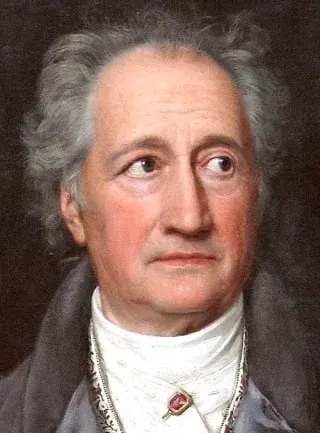Biography of Goethe

| date | place | |
|---|---|---|
| born | August 28, 1749 | Frankfurt |
| died | March 28, 1832 | Weimar, Germany |
Johann Wolfgang von Goethe was a German polymath and writer, widely recognized as the greatest and most influential German-language writer. His extensive contributions spanned poetry, plays, novels, aesthetic criticism, scientific treatises, and administrative reforms. After achieving success with his first novel, "The Sorrows of Young Werther" (1774), Goethe settled in Weimar, where he became a member of the Duke's privy council and engaged in various administrative and cultural activities. Goethe's literary collaboration with Friedrich Schiller and others during the late 18th century is collectively known as Weimar Classicism. Notably, he published the verse epic "Hermann and Dorothea" and the first part of his acclaimed drama Faust during this period. His friendship with Schiller and engagement with prominent intellectuals influenced Western literary, political, and philosophical thought. Aside from his literary pursuits, Goethe made significant contributions to science, publishing works on botany, anatomy, and color theory. His journey to Italy in 1788 inspired his major scientific work, "Metamorphosis of Plants." Goethe's diverse interests also led to involvement in theater management, contributing to the planning of Weimar's botanical park, and overseeing the reopening of silver mines. Goethe's personal life was marked by relationships, including an unrequited love for Friederike Brion, which inspired several poems. His most famous work, The Sorrows of Young Werther, gained worldwide fame but did not bring him substantial financial success due to the lack of copyright protection. Despite initial studies in law at Leipzig University and a brief legal practice, Goethe's passion for literature and the arts prevailed. He experienced a personal awakening in literature through his friendship with Johann Gottfried Herder and exposure to William Shakespeare's works. Goethe's multifaceted legacy encompasses literature, science, and cultural leadership, solidifying his lasting impact on Western intellectual history.
Feel free to be first to leave comment.